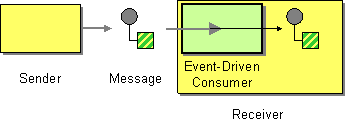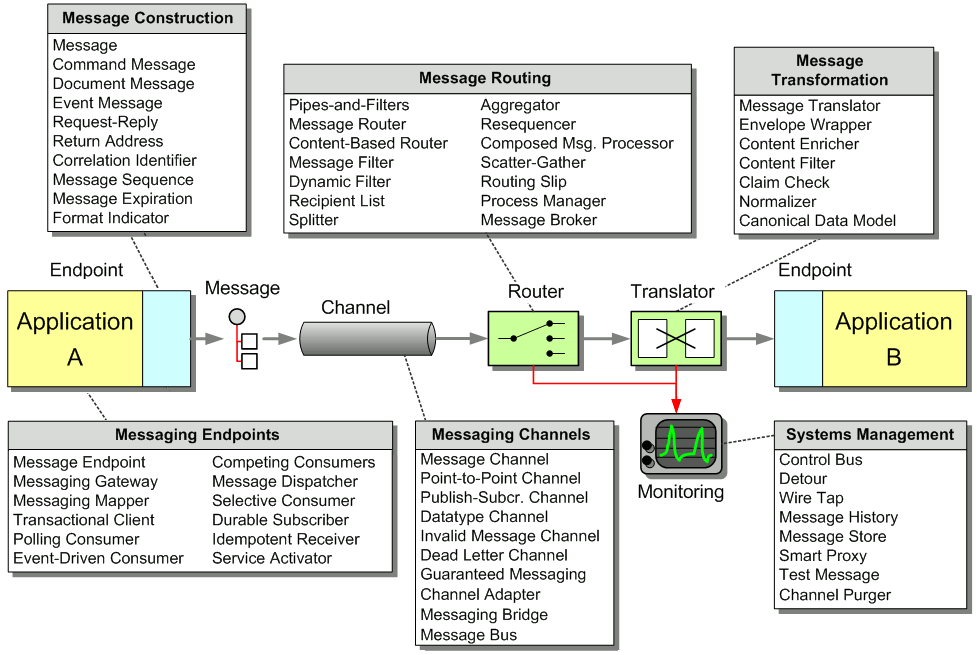Event-Driven Consumer - Enterprise Integration Patterns (original) (raw)
An application needs to consume Messages as soon as they’re delivered.
How can an application automatically consume messages as they become available?

The application should use an Event-Driven Consumer, one that is automatically handed messages as they’re delivered on the channel.
This is also known as an asynchronous receiver, because the receiver does not have a running thread until a callback thread delivers a message. We call it an Event-Driven Consumer because the receiver acts like the message delivery is an event that triggers the receiver into action.
An Event-Driven Consumer is an object that is invoked by the messaging system when a message arrives on the consumer’s channel. The consumer passes the message to the application through a callback in the application’s API. (How the messaging system gets the message is implementation-specific and may or may not be event-driven. All the consumer knows is that it can sit dormant with no active threads until it gets invoked by the messaging system passing it a message.)
...Read the entire pattern in the book Enterprise Integration Patterns
Example: RabbitMQ ConsumerNEW
RabbitMQ consumers are by default event-driven. When consuming messages off a Channel, you have to provide an implementation of the Consumer interface. The following code example sets up a very simple consumer that simply prints incoming messages as strings:
Consumer consumer = new DefaultConsumer(channel) { @Override public void handleDelivery( String consumerTag, Envelope envelope, AMQP.BasicProperties properties, byte[] body) throws IOException { String message = new String(body, "UTF-8"); System.out.println("Received '" + message + "'"); } };
boolean autoAck = true; channel.basicConsume(queueName, autoAck, consumer);
This implementation is not a Transactional Client because the client acknowledges messages automatically on receipt but before processing.
The complete source code for this example can be found on Github.
Related patterns:
Competing Consumers, Durable Subscriber, Message, Message Channel, Message Dispatcher, Selective Consumer, Polling Consumer, Transactional Client
Integration Pattern Language
